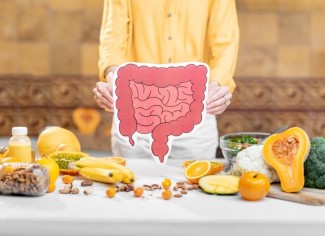
Your gut is home to millions of microbes that help you digest food and perform other essential functions – this is known as your gut microbiome.
Most of us get our first big dose of microbes at birth, while traveling through the birth canal during delivery, and then through our mothers’ breast milk – this is the beginning of our microbiome. Later, environmental exposures and diet can change our microbiome to be either beneficial to our health or put us at greater risk of disease. Because so many things affect our bodies’ ecosystems, there’s a huge amount of variation in microbial populations, even among people of the same age.
Here are some reasons why you should care about your gut microbiome:
- It supports your immune system.
- It helps support a healthy weight.
- It can affect your food cravings.
- It produces essential vitamins our bodies are unable to make.
- It helps control blood sugar and lower the risk of diabetes.
- It can protect you from allergies.
- It can affect your brain health.
Here are six ways to keep your gut microbiome happy:
- Eat a healthy, balanced diet – try to avoid packaged or processed foods that are high in unwanted food additives and preservatives, like sugary cereals and treats that disrupt the healthy bacteria in your gut. It’s fiber (hello fruits and veggies!) that drives the formation of a healthy microbiome.
- Eat organic – organic food reduces exposure to pesticides, and it's known that pesticides cause several issues, including disrupting the microbiome balance.
- Avoid snacking – try to increase intervals between meals to give your microbes a rest. You can even try occasionally skipping meals or having an extended fast.
- Exercise – regular physical activity isn’t just good for your heart, it’s good for your gut, too! Exercise increases the good bacteria in your gut.
- Relax – research shows that prolonged periods of stress can impair your gut bacteria and make you susceptible to infection.
- Stop smoking and limit your alcohol intake – toxins affect the delicate balance in your gut and can cause an overgrowth of harmful bacteria.
Like everything else, there’s no one-size-fits-all protocol when it comes to your microbiome. The key is to support your microbiome in as many ways as possible.